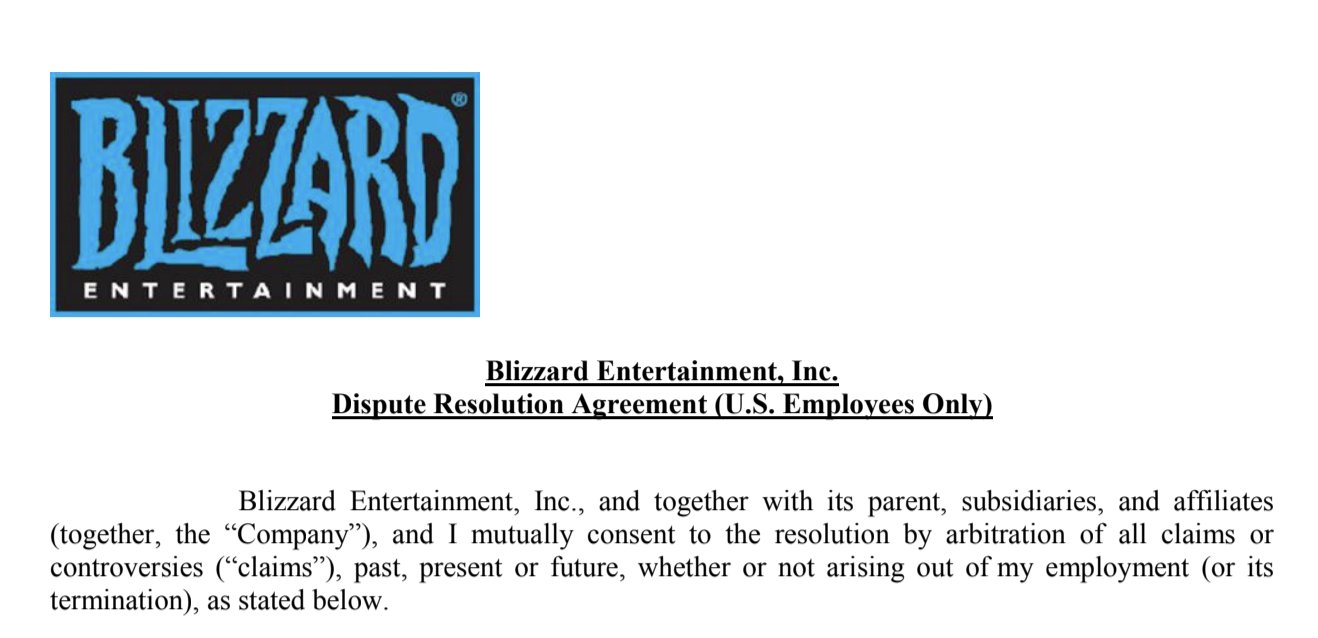"Arbitration clause silences an employee": lawyer explains forced arbitration and DFEH's authority in Activision Blizzard lawsuit
One of the demands made by the protesters prior to and during the Activision Blizzard walkout against sex discrimination, was that the company should end forced arbitration for all employees. This is something that the company CEO Bobby Kotick failed to address in his statement to the staffers. Mandatory arbitration also features prominently in a similar lawsuit against Riot Games.
- What is forced arbitration exactly?
- Why do California employers force new hires into arbitration agreements?
- How can DFEH represent affected employees of Activision Blizzard in court despite their having signed those agreements?
To answer these questions, we reached out to senior lawyer Evgeny Farafonov at law firm Semenov&Pevzner (St. Petersburg branch).
Below is Farafonov’s commentary:
The California Department of Fair Employment and Housing (DFEH) has filed a lawsuit against Activision Blizzard after years of investigation. The lawsuit centers around “violations of the state’s civil rights and equal pay laws,” specifically regarding the treatment of women.
As stated in statement of claim, DFEH brought this action in its own name to remedy violations of the California Fair Employment and Housing Act, Government Code section 12900 et seq (FEHA) as well as California Equal Pay Act, Labor Code section 1197.5, by Defendant Activision Blizzard inc., Blizzard Entertainment, Inc., and Activision Publishing, Inc.
The right of the DFEH to fill claims in its own name is most important for employees who were forced by the employer to consent to the consideration of labor related disputes in “private arbitration”.
So called mandatory arbitration agreements require employees to go through a form of private dispute resolution outside the court system. California employers often force employees to enter into arbitration agreements as a condition of employment. There are many reasons why employers require mandatory arbitration agreements. Employees may be less likely to win their case in arbitration. Even if they do win, they often receive lower rewards than if they filed a lawsuit.
In many situations, particularly in sexual harassment and discrimination situations, an arbitration clause in a California employment contract silences an employee by preventing them from pursuing their claim in court.
However, DFEH brought this enforcement action against Blizzard group in its prosecutorial role, seeking relief in the public interest for the state and Blizzard`s female employees. Pursuant to the authority vested in DFEH under FEHA, Government Code section 12900 et seq. and related laws, DFEH enforcement actions seeks to remedy, prevent, and deter unlawful harassment, retaliation, and discrimination.
As set forth in Government Code section 12900 et seq., DFEH is charged with enforcing FEHA, including initiating and investigating complaints on behalf of itself and persons alleged to be aggrieved by discriminatory employment practices (Gov.Code § § 12930, 12961). DEFH is additionally authorized to investigate and prosecute claims under Labor Code section 1197.5, which prohibits employers from paying employees of one sex less for substantially similar work (Gov.Code § 12930, subd (f) (5)). At DFEH discretion, DFEH may bring a civil action in the name of the department on behalf of a group or class of persons adversely affected, in a similar manner, by an unlawful practice (Gov.Code §12965). The DFEH acts as a public prosecutor when it pursues civil litigation under FEHA (State Personnel Bd. V Fair Empl. & Hous. Com. (1985) 29 Cal.3d 422, 444), and it may seek remedies to “vindicate” that it considers to be in “the public interest in preventing discrimination” (Dept. Fair Empl. & Hous v.Superior Ct. of Kern Cty (2020) 54 Cal. App. 5th 356, 373).
Last week, a former Activision Blizzard employee shared what seems to be the beginning of the dispute resolution agreement new hires have to sign when joining the company.
Riot Games is also known to have forced its employees into arbitration agreements. In May 2019, Riot Games announced that it would permit all new Rioters to opt out of mandatory arbitration. This, however, only applied to sexual harassment and sexual assault and did not affect the active litigation that was already ongoing at the time of the announcement.
